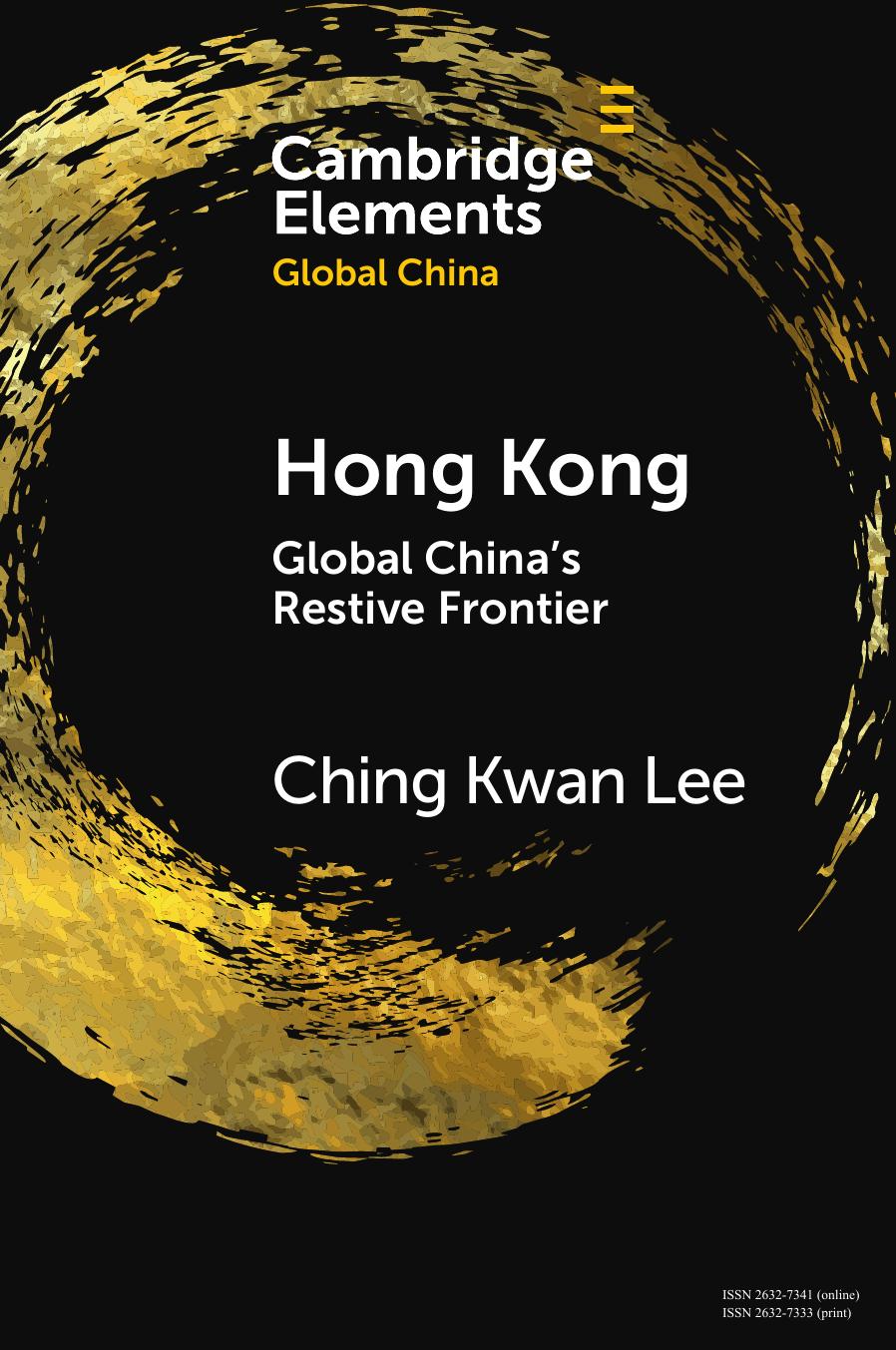

Most ebook files are in PDF format, so you can easily read them using various software such as Foxit Reader or directly on the Google Chrome browser.
Some ebook files are released by publishers in other formats such as .awz, .mobi, .epub, .fb2, etc. You may need to install specific software to read these formats on mobile/PC, such as Calibre.
Please read the tutorial at this link: https://ebookbell.com/faq
We offer FREE conversion to the popular formats you request; however, this may take some time. Therefore, right after payment, please email us, and we will try to provide the service as quickly as possible.
For some exceptional file formats or broken links (if any), please refrain from opening any disputes. Instead, email us first, and we will try to assist within a maximum of 6 hours.
EbookBell Team

4.3
18 reviewsAbstract:How did Hong Kong transform itself from a shoppers’and
capitalists’paradise into a city of protests at the frontline of a global
anti-China backlash? This Element situates the China–Hong Kong
contestation in the post-1997 era in the broader context of“global
China,”conceptualized as a double movement. On the one hand,
Beijing deploys a bundle of power mechanisms–economic statecraft,
patron-clientelism, and symbolic domination–around the world,
including Hong Kong. On the other, this Chinese power project triggers
a variety of countermovements from Asia to Africa, ranging from
acquiescence and adaptation to appropriation and resistance. In
Hong Kong, reactions against the totality of Chinese power have taken
the form of eventful protests, which, over two decades, have broadened
into a momentous decolonization struggle. More than an ideological
conflict between a liberal capitalist democratizing city and its
Communist authoritarian sovereign, the Hong Kong story, stunning
and singular in its many peculiarities, offers general lessons about
China as a global force and its uneven consequences.
Keywords:global China, Hong Kong, decolonization, protests,
internal colonization